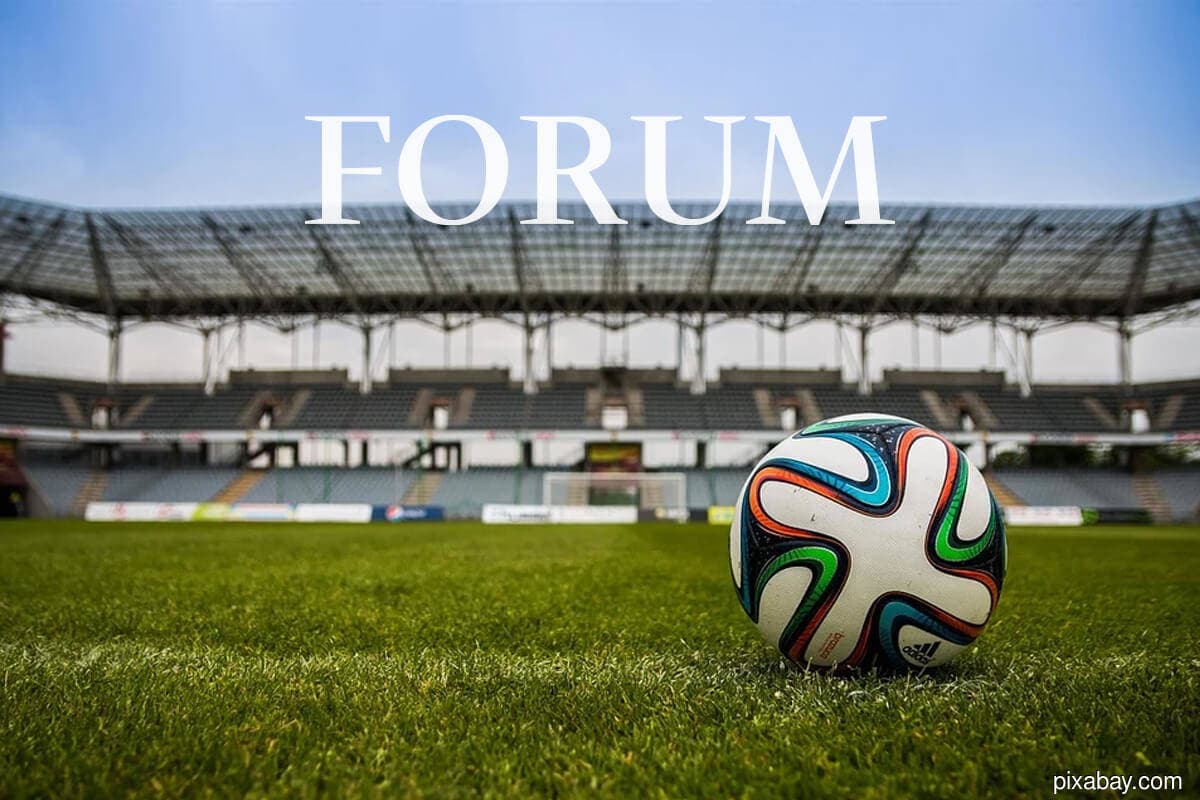
This article first appeared in Forum, The Edge Malaysia Weekly on April 26, 2021 - May 2, 2021
“As coups go, the European Super League (ESL) wouldn’t have toppled a banana republic. It was a rushed job to beat UEFA’s impending announcement of the new Champions League format, to which the duplicitous plotters had already agreed.”
We thought it might be the end: the crown jewels of mankind’s favourite pastime stolen by a dirty dozen (among them venture capitalists, an oligarch and a sheikh) bankrolled by JP Morgan to the tune of £4.6 billion (RM26.3 billion).
Football, we feared, may never be the same again. Seventy-two hours later, we find out it was all a half-past-six operation scrawled on a beermat to which they were adding as they went along.
As coups go, the European Super League (ESL) wouldn’t have toppled a banana republic. It was a rushed job to beat UEFA’s impending announcement of the new Champions League format, to which the duplicitous plotters had already agreed. It was also to avoid demonstrations from fans who are about to be allowed back into stadiums.
Yes, they knew there’d be a backlash. They knew blatant falsehoods about saving the game (as claimed by ESL chairman Florentino Perez of Real Madrid) wouldn’t wash: The biggest upheaval in the history of football was about greed.
It’s about a dozen billionaires getting even richer and to hell with the consequences. Even if they happen to be ripping the heart and soul out of something loved by four billion people. Gordon Gekko might not have stooped this low.
Our darkest suspicions were confirmed by a board member of one of the six English mutineers before the climbdown. Interviewed by Sky Sports, the anonymous director revealed: “Our primary job is to maximise revenues and profits. The wider good of the game is a secondary concern.” As if we thought otherwise.
The term “European” is itself a misnomer, as this charade had a decidedly American accent. Three of the six English Premier League (EPL) clubs are owned by Americans and the closed-shop format was perceived as the thin end of the franchise wedge. Closed doors, broken pyramid, wage caps … all alien concepts that could lead to an NFL-style set-up with games exported around the globe. No promotion, no relegation, no hope.
Not content with depriving fans of much-loved derbies, the new modus operandi could see “home” games being played in Abu Dhabi, Beijing and Sydney or wherever there was a market. And then, the ultimate sacrilege of actually shifting a franchise to more fertile ground. Far-fetched? Arsenal owner, Stan Kroenke, has already switched the St Louis Rams to Los Angeles — 2,560km away.
There’s similar disdain for those they call “legacy fans” who cause trouble and the business model prefers to court “fans of the future”, who don’t have much allegiance but buy merchandise. Playing matches abroad is a key part of winning them over.
Culturally, it’s “never the twain shall meet”. As well as “not being able to get our heads around relegation”, as one US official put it, Leicester’s 5,000-1 triumph in 2016 is something “to be insured against”. No fairytales, either, then. Nor are they likely to understand a banner at Chelsea on Tuesday that said: “We want our cold nights in Stoke.”
There’s rich irony in that the ESL ringleaders are the bosses of Liverpool and Manchester United, England’s two greatest clubs both founded by working men on working class principles over a century ago. Staunchly socialist Liverpool has already declared owner John Henry’s position untenable. “We’re all ‘FSG Out’ now,” screamed an editorial in This Is Anfield.
The grandson of the great Bill Shankly, a former manager of Liverpool, has even called for the removal of his statue from the grounds. In Manchester, Ed Woodward, executive vice-chairman and British patsy of the hated Glazers, has already stepped down.
Another reason the ESL was not really European is that the original 12 clubs came from three countries — England, Spain and Italy — with no less than nine from four cities — three from London (Chelsea, Arsenal and Tottenham) and two each from Manchester (City and United), Madrid (Real and Atletico) and Milan (AC and Inter). Liverpool, Barcelona and Juventus made up the total but, significantly, neither last year’s European champions, Bayern Munich, nor runners-up, Paris St Germain, signed up.
Spanish and Italian clubs saw it as a way to circumvent the broadcasting-fuelled dominance of the EPL, which rakes in more TV revenue than the other big leagues combined. Hence this unholy alliance. But what is emerging now is that several joined only because they didn’t want to be left behind — and miss out on the £350 million founder member’s fee.
Barcelona and Real also need the money. Both are circa €1 billion (RM4.9 billion) in debt and have their respective stadiums to refurbish. Spurs have a new one but are in hock to a similar level.
As it turned out, it lasted 72 hours compared to the 133-year-old institution (English Football League) it was trying to supersede. Resistance proved impressively strong in the UK. With British Prime Minister Boris Johnson’s threat of a “legislative bomb” to stop it to managers, players and pundits, historically hostile fans and historically hostile parties all speaking against it, the ESL did some unification job.
But football must ensure such charlatans can never hijack the game again and listen to the long-suffering fans. Now that Atletico Madrid and the two Milanese clubs have joined the British exodus, the ESL is effectively dead and the most cherished tournaments, the EPL and Champions League, are safe for now. And what looked like a revolution is no more than an Arab Spring.
Bob Holmes is a long-time sports writer specialising in football
Save by subscribing to us for your print and/or digital copy.
P/S: The Edge is also available on Apple's AppStore and Androids' Google Play.